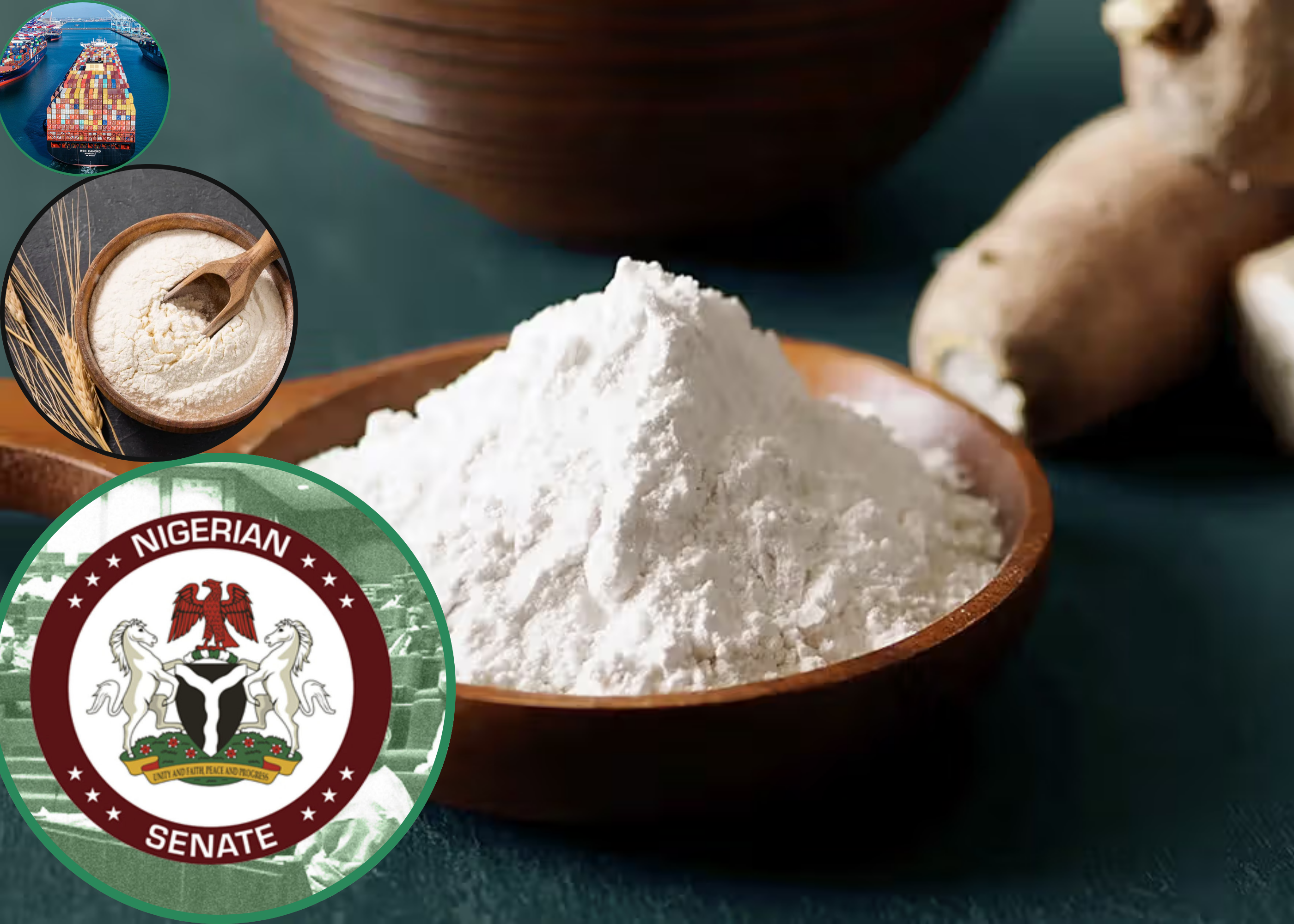News in Brief:
– The Nigerian Senate is pushing a bill that mandates the inclusion of 20% cassava flour in all wheat-based products to reduce wheat import costs and boost the local cassava industry.
– This move aligns with government efforts to promote cassava farming and reduce reliance on imports.
The Nigerian Senate is taking steps to reduce the country’s reliance on wheat imports by mandating the inclusion of 20% high-quality cassava flour in all wheat products.
The bill, introduced by Senator Saliu Mustapha (Kwara Central), aims to significantly reduce the annual $3 billion spent on wheat imports. Essentially, the legislative arm believes that incorporating cassava flour can lower production costs and boost the domestic agricultural sector.
Promoting local cassava farming and market
The Senate’s initiative aligns with the 20% cassava flour inclusion policy announced by the agriculture ministry in 2021.
According to the bill’s sponsor, several past administrations have attempted to establish a similar policy to encourage the inclusion of cassava in edible flour because of its immense benefits and cost savings to the nation.
If passed, the bill would solidify this policy and drive its implementation. It is also expected to stimulate cassava farming and create a sustainable market for cassava flour.
Additionally, Senator Mustapha noted other potential economic benefits of the bill such as job creation in the food sector, increased foreign exchange earnings from cassava exports, and the overall development of rural economies.
How will this policy affect you?
Already, Nigeria is the world’s largest producer of cassava, surpassing Brazil by a third and producing nearly double the amount of Indonesia and Thailand.
In the country, the North Central zone is the leading producer, yielding over 7 million tonnes annually (1999-2002). The South-South follows closely with over 6 million tonnes per year, while the South West and South East produce slightly less at just under 6 million tonnes. However, the North West and North East zones are significantly smaller producers, contributing 2 million and 0.14 million tonnes, respectively.
Despite these figures, the country earns very little from exporting cassava compared to other agricultural goods like cocoa beans, cashew nuts, sesame seeds, and others. Local consumption is so high and accounts for nearly all domestic production of the crop.
This proposed policy could see a rise in industrial demand, which could have a dual effect on the industry. It may drive more farmers to cultivate cassava, which requires less input and technical know-how than other common crops, including maize. However, it could also cause prices to rise if the demand surpasses production with manufacturers having higher purchasing power than the masses.
The government, through the Ministry of Agriculture, and private stakeholders must collaborate to take full advantage of this 20% cassava bill while ensuring that Nigerians benefit from the booming industry.



